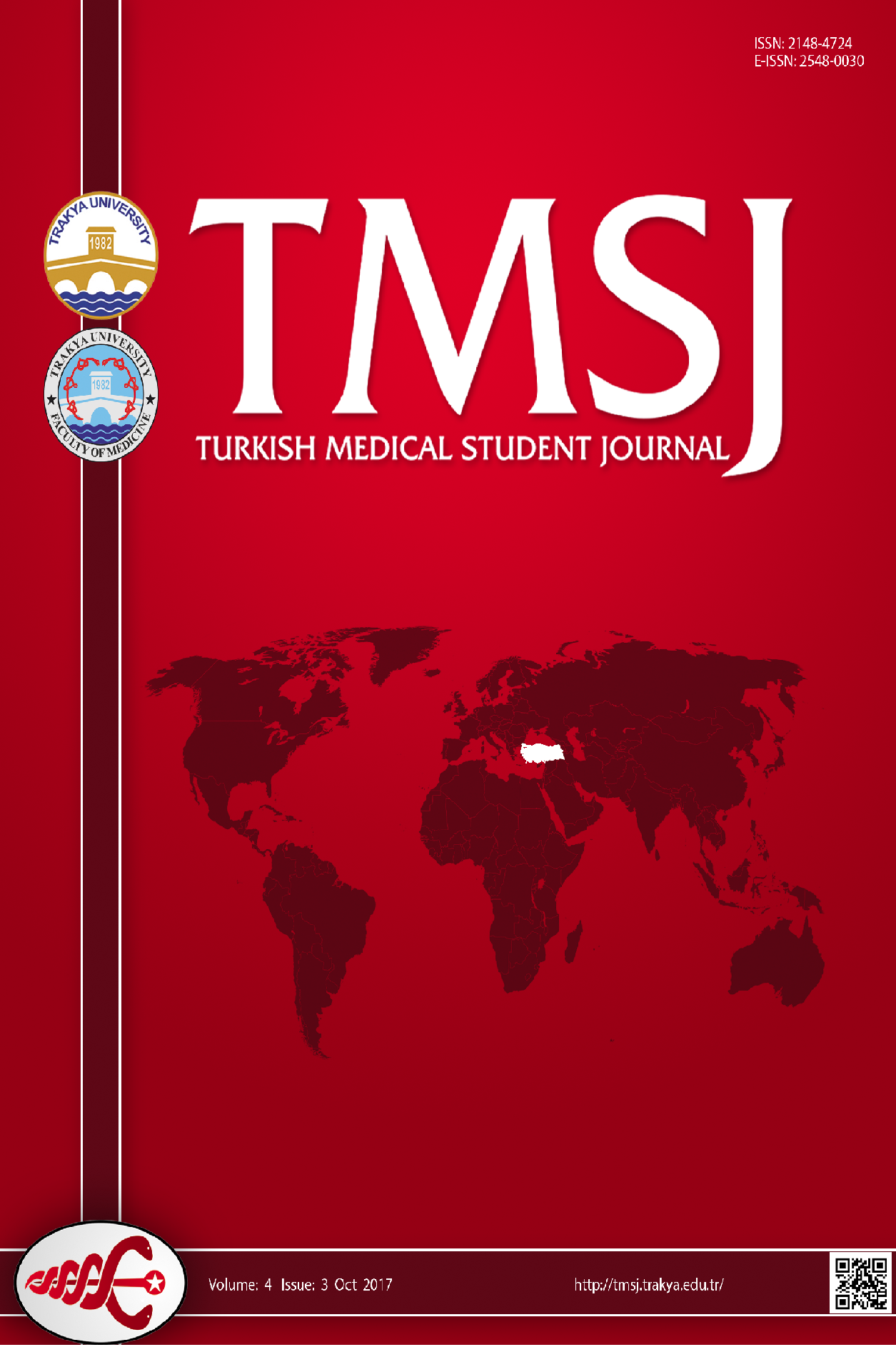
Turkish Medical Student Journal
Yazarlar: Ahmet AKIN, Hamza BERLİK, M. Burak BİLGİLİ, Zafer DEMİR, Mustafa GENC, Abdulsamet GUNAY, İbrahim HACİBEY, Serdar KARAKOC, Yusuf Alparslan KUTLU, Ahmet UNAL, Mustafa OZTURK
Konular:-
Anahtar Kelimeler:Breast cancer,HER2,Estrogreceptors,Progesterone receptors,Disease-free survival
Özet: Aims: Breast cancer is the most common type of cancer among all women across the world, with an incidence of 25.2%. Of all the cancer cases, breast cancer comes second in line after lung cancer. By 6.4% it marks fifth place as the reason for cancer-related-deaths. Therefore new studies on breast cancer are required. We aimed to retrospectively analyze clinical, pathological and prognostic features of cases that were divided into four subgroups based on their hormone receptor and HER-2 conditions. Method: Records of GATA-Oncology Clinic patients who have been diagnosed with breast cancer within years of 2008-2014, were inspected retrospectively. Cases were divided into four subgroups based on their hormone receptor and HER-2 conditions. Missing records were primarily gathered by electronic recording system, also still-missing-information about the patients were provided via phone calls. Collected data has been evaluated with SPSS 15,0. Results: While demographics such as family history and menopausal state were not different among 4 subgroups, triple negative patients tended to have a lower body-mass index and mean age (p=009, p=0.041, respectively). Only 12 patients had advanced disease at diagnosis. A total of 168 patients received chemotherapy. Progression occurred in 41 patients (21.9%) from early phase breast cancer cases that were taken to adjuvant chemotherapy program. Family history had a significant association with recurrence in breast cancer patients (p=0.026). Menopausal state, lymphovascular invasion, lymph node state and stage were not associated with progression. Independent prognostic factors were not obtained with multivariate analysis for disease-free survival. Advanced stage breast cancer patients had a higher tendency to metastasis. Triple negative patients had more drug resistance towards systemic treatment than other subgroups (p<0.001). It has been found that full response to anthracycline + taxane regime was less in triple negative patients. Conclusion: In conclusion, there were some differences within our subgroups. Patients of these subgroups should be followed up and treated with different strategies. All subgroups, especially triple negative group, were in need of new effective therapy strategies.